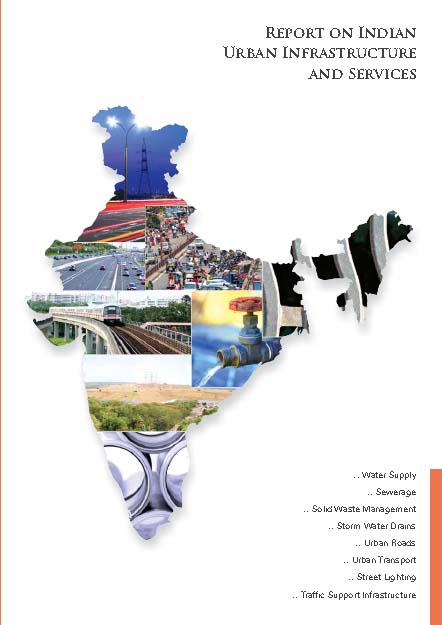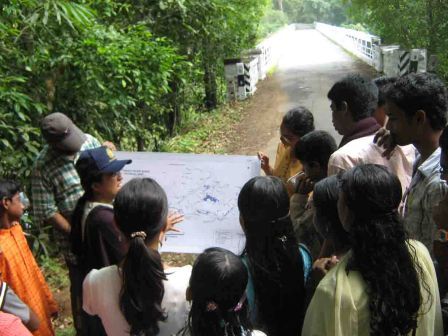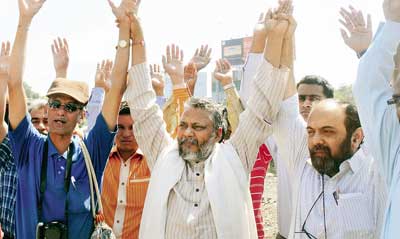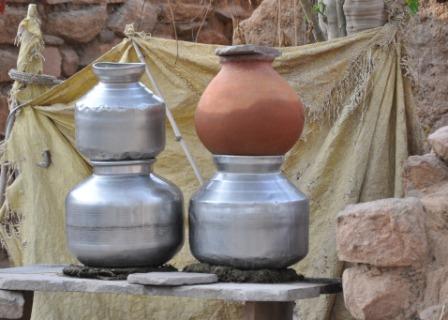/topics/voluntary-citizen-or-civil-society-sector
Voluntary Citizen or Civil Society Sector
Estimating the investment requirements for urban infrastructure services – Report of the High Powered Expert Committee (HPEC)
Posted on 22 Mar, 2011 09:13 AM This report on Indian urban infrastructure and services is an outcome of the High Powered Expert Committee (HPEC) chaired by Isher Judge Ahluwalia set up by the Ministry of Urban Development in May, 2008 for estimating the investment requirement for urban infrastructure services. It is an inevitable outcome of the faster rates of growth to which the economy has now transited. Indeed, urbanisation is itself a process that will support growth. The Committee has made recommendations on how to deal with these challenges of urbanisation.
This report on Indian urban infrastructure and services is an outcome of the High Powered Expert Committee (HPEC) chaired by Isher Judge Ahluwalia set up by the Ministry of Urban Development in May, 2008 for estimating the investment requirement for urban infrastructure services. It is an inevitable outcome of the faster rates of growth to which the economy has now transited. Indeed, urbanisation is itself a process that will support growth. The Committee has made recommendations on how to deal with these challenges of urbanisation.
The Committee has held several meetings with officials from the Government of India, state governments and local governments and also met with academicians and other stakeholders such as Asian Development Bank with interest and expertise in Indian urban issues.
The report argues that the challenge of managing urbanisation will have to be addressed through a combination of increased investment, strengthening the framework for governance and financing, and a comprehensive capacity building programme at all levels of government. The Committee has projected very large investment requirements for providing public services to specified norms and also supporting the growth process. The challenge of financing these investments is inextricably linked with the challenge of governing the cities and towns of India.
The Braj Foundation wins the best NGO award for reviving rural water bodies
Posted on 15 Mar, 2011 06:16 PMIn a recent function held in New Delhi, a NGO The Braj Foundation won the award for the Best NGO for the revival of rural water bodies.The foundation is run by a team of committed professionals from various walks of life.
Award ceremony video.
Ministry of Water Resources announces Ground Water Augmentation Awards and National Water Award
Posted on 10 Mar, 2011 10:48 AMThe Government has instituted Ground Water Augmentation Awards (Bhoomijal Samvardhan Puraskar) and National Water Award (Rashtriya Jal Puraskar).
Awards will be given for significant contribution for encouraging Non-Governmental Organisations (NGOs) / Gram Panchayats / Urban Local Bodies (for population upto 1 lakh) / Institutions / Corporate Sector and Individuals for adopting innovative practices of Ground Water Resources augmentation through rainwater harvesting and artificial recharge, promoting water use efficiency and re-use of water and awareness creation through people's participation in the targeted areas resulting in the sustainability of the resources and development of adequate capacity amongst the stakeholders.
Categories of Award: The awards have been categorised into four sections:
- For the Non-Governmental Organizations (NGOs), Gram Panchayata, Urban Local Bodies, Institution, Corporate Sectors and Individuals for adopting innovative practice of Ground Water Resources Augmentation through Rain water Harvesting and Artificial Recharge.
Training on Use of Open Source Geospatial Tools in IWRM, SaciWATERs-CapNet Network - Apply by 16th March 2011
Posted on 09 Mar, 2011 03:34 PM Organizers:
Organizers:
- SaciWATERs-CapNet Network (SCaN)
- OSGeo-India
- Sálim Ali Centre for Ornithology and Natural History (SACON)
- Cap-Net
Venue: Hyderabad
Description:
The SaciWATERs-CapNet Network (SCaN) invites applications for a three day training course(19th - 21st April, 2011) on the use of Open Source Geospatial Tools in Integrated Water Resources Management (IWRM).
Report of the National Science Mela 2011 organised by Arul Anandar College of Karumathur, Tamil Nadu
Posted on 04 Mar, 2011 02:55 PMFrom 25th to 27th of Feb.- 2011, the Arul Anandar College of Karumathur conducted National Science Mela 2011: Youth for Science and Science for prosperity on Eco - water, Sanitation and Hygiene with the support of National Council for Science & Technology Communication, DST, Govt. of India, New Delhi, Tamil Nadu State Council for Science and Technology and Tamil Nadu Science City Chennai.
iGREEN was invited for this Science Mela and put a stall and explained about the carbon effect to the participants. Mr. Francis Xavier - Convener of iGREEN explained the Science of 350 campaign and How to reduce the carbon effect from the atmosphere with the support of our iGREEN Scientist Mr. Abdul Azis and Mr. John Bosco, Assistant Prof. of Rural Development Science in Arul Anandar College to the participants.
Emerging policies, creating new commons - A policy forum
Posted on 04 Mar, 2011 02:54 PMThe panel discussion was held to further the idea of commons by extending the idea of autonomy in some of the discussions on commons to the Indian idea of Swaraj or Self-Rule.
Discussions in the panel drew the existing ideas of resource sharing, establishing institutions for governance but extend this to a broader discussion on knowledge and democracy. The panel draws from a recent examination of Gandhi’s Hind Swaraj from a knowledge perspective, an attempt by a network of knowledge commons - the Knowledge In Civil Society or KICS – to posit an Indian science and technology manifesto for 21st-century India and the world. Knowledge Swaraj suggests a new social contract of science in India, based on the principles of plurality, sustainability and justice and a closer look at expertise and knowledge in India. The panel began with a view from civil society on knowledge by M V Sastri looking at Gandhi’s ideas of Hind Swaraj and oceanic circles and the need for the commons debates to relook at ideas from Hind Swaraj from the viewpoint of the present day discourses of human rights also. This was followed by papers that suggest how these ideas can be explored in practice.
River schools can make the future look bright - Parineeta Dandekar
Posted on 04 Mar, 2011 01:25 PM Above - Children studying a map of the Chalakudy Basin. Photo - RRC.
Above - Children studying a map of the Chalakudy Basin. Photo - RRC.
Seeds of sustainability and sensitivity when sown at a young age, blossom into responsible individuals. And you need to be in touch with the land to sow those seeds. The Central and State Boards of Education in India have made Environmental Science a compulsory subject for schools and junior colleges (for all subjects). But Environmental Sciences is not to be studied in the classroom. In order to understand the erosion and deposition processes of a river, students need to visit a river bend in their city and in order to instil a lifelong aversion to plastic bags, a landfill and dumping grounds need to be seen.
25 years of the Narmada struggle - Ordinary people, extraordinary movement
Posted on 03 Mar, 2011 11:15 AMArticle and Images by: National Alliance of People's Movements







 Rural household saving water at home
Rural household saving water at home